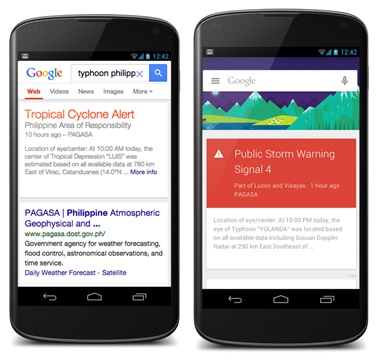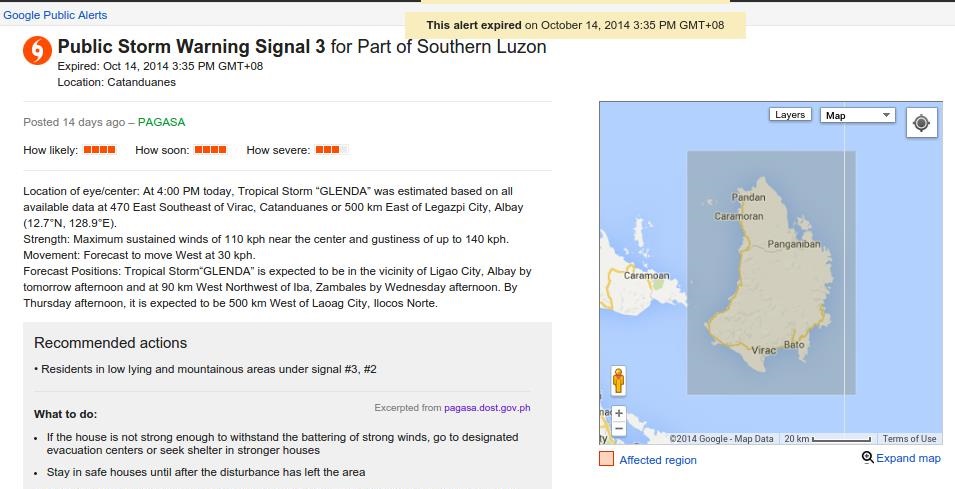Google partners with Pagasa to release Public Alerts for PH
MANILA, Philippines–Google has officially launched Google Public Alerts in the Philippines on Nov. 12, which is an online platform designed to quickly deliver natural disaster warnings to a wide user base and grant them access to critical information during a calamity.
“People do come to the Internet for information during disasters,” Lead Strategic Partnership Manager for Google Crisis Response Meryl Stone said. “During the earthquake in Japan in 2011, we noticed that 20 percent of all the traffic [on] the Hawaiian Islands [were] dedicated to information about the tsunami (generated by the earthquake).”

Google Public Alerts automatically targets users within the affected zones of any ongoing calamity and provides them with vital information such as storm strength, wind speed and maps showing the direction the weather disturbance.
As of yet, Google Public Alerts only works for weather-based disturbances in the Philippines, since the Philippine Atmospheric, Geophysical and Astronomical Services Administration (Pagasa) is currently the sole provider of crisis information for Google.
Stone thanked Pagasa for their help in developing Public Alerts.
“Ms. Nancy Lance has truly been the heart and soul of this project, and has worked steadfastly with an incredible technical team from Pagasa to make this our fastest moving partnership in the entire world,” Stone said Google Public Alerts uses official Pagasa data in their alerts as part of their information-sharing deal.
Google product manager Payal Patel stressed the importance of official and credible information during a crisis. “We noticed this problem that whenever there was an emergency situation, it was hard for our users to find authoritative and useful information in their timeline,” she said.
Phivolcs collaboration
Stone also expressed hope that Google will work with similar institutions such as the Philippine Institute of Volcanology and Seismology (Phivolcs) in the future. The move will add earthquake and volcanic coverage for Google Public Alerts.
Google Public Alerts is displayed as a box above the search results, displaying all relevant information regarding any ongoing calamity.
The Google Crisis Response team is tasked with harnessing the immense resources at Google’s disposal to efficiently communicate disaster warnings to their users.
The search giant is currently undertaking extensive mapping efforts around the country, aimed at improving Google Public Alerts’ capabilities during disasters such as the location of food, shelter and supplies.
They also view the future use of traffic navigation app Waze to warn users of potential road hazards and blockages caused by calamities.
Google said that it will continue to improve on the ease of use features of Public Alerts such as Public Alerts in local languages and PWD access. “It is something that we prioritize,” Patel said, “We have done it in the US. It’s just a matter of a few more weeks of work and we’ll be able to implement it in the Philippines”.
RELATED STORIES
